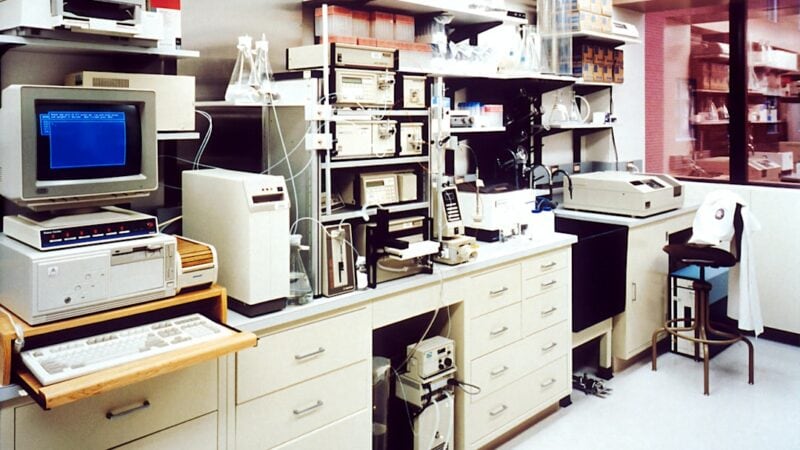The Best Gluten-Free Supplements for People with Celiac

Celiac disease is an autoimmune disorder that affects the small intestine. It is triggered by the consumption of gluten, a protein found in wheat, barley, and rye. When individuals with celiac disease consume gluten, their immune system responds by attacking the lining of the small intestine, leading to inflammation and damage. This can result in a range of symptoms, including digestive issues, fatigue, nutrient deficiencies, and more.
The only treatment for celiac disease is a strict gluten-free diet. This means avoiding all foods and products that contain gluten. However, even with a gluten-free diet, individuals with celiac disease may still experience nutrient deficiencies due to the damage caused to the small intestine. This is where supplements come into play.
Supplements play a crucial role in managing celiac disease by helping individuals meet their nutritional needs and address any deficiencies that may arise. They can provide essential vitamins, minerals, and other nutrients that may be lacking in a gluten-free diet. By incorporating gluten-free supplements into their daily routine, celiac patients can support their overall health and well-being.
Table of Contents
Key Takeaways
- Celiac disease is an autoimmune disorder triggered by gluten consumption.
- Gluten-free supplements are essential for celiac patients to manage their condition.
- Supplements can help address vitamin and mineral deficiencies commonly found in celiac disease.
- Top gluten-free multivitamins, calcium supplements, omega-3 supplements, probiotics, and herbal supplements are available for celiac patients.
- Choosing the right gluten-free supplements is crucial for effective celiac disease management.
Understanding Gluten-Free Supplements for Celiac Patients
Gluten-free supplements are specifically formulated to be free from gluten-containing ingredients. They are designed to provide essential nutrients without the risk of triggering symptoms or causing damage to the small intestine. These supplements undergo rigorous testing and certification processes to ensure that they meet the standards for being gluten-free.
One key difference between gluten-free supplements and regular supplements is the sourcing of ingredients. Gluten-free supplements use ingredients that are naturally free from gluten or have been processed to remove any traces of gluten. Regular supplements, on the other hand, may contain ingredients derived from wheat, barley, or rye, which can pose a risk for individuals with celiac disease.
The importance of gluten-free certification cannot be overstated when it comes to choosing supplements for celiac patients. Gluten-free certification provides assurance that the product has been tested and meets the standards for being gluten-free. Look for certifications from reputable organizations such as the Gluten-Free Certification Organization (GFCO) or the National Celiac Association (NCA) to ensure that the supplement is safe for consumption.
Importance of Supplements for Celiac Disease Management
Nutrient deficiencies are common in individuals with celiac disease due to the damage caused to the small intestine. The small intestine is responsible for absorbing nutrients from food, and when it is inflamed and damaged, it becomes less efficient at absorbing essential vitamins, minerals, and other nutrients. This can lead to deficiencies in nutrients such as iron, calcium, vitamin D, vitamin B12, and more.
Supplements play a crucial role in meeting the nutritional needs of individuals with celiac disease. They can provide a concentrated dose of essential nutrients that may be lacking in a gluten-free diet. By taking supplements, celiac patients can ensure that they are getting the necessary vitamins and minerals to support their overall health and well-being.
In addition to addressing nutrient deficiencies, supplements offer a range of benefits for individuals with celiac disease. They can help boost energy levels, support immune function, promote healthy digestion, and improve overall well-being. By incorporating supplements into their daily routine, celiac patients can optimize their health and manage their condition more effectively.
Vitamin and Mineral Deficiencies in Celiac Disease
Celiac disease can lead to deficiencies in a variety of vitamins and minerals. Some of the most common nutrient deficiencies in celiac disease include:
1. Iron: Iron deficiency is common in individuals with celiac disease due to malabsorption in the small intestine. This can lead to symptoms such as fatigue, weakness, and anemia.
2. Calcium: Calcium absorption is impaired in individuals with celiac disease, leading to a higher risk of osteoporosis and bone fractures.
3. Vitamin D: Vitamin D deficiency is common in celiac disease due to impaired absorption in the small intestine. This can lead to weakened bones, muscle weakness, and an increased risk of autoimmune diseases.
4. Vitamin B12: Celiac disease can lead to vitamin B12 deficiency, which can cause symptoms such as fatigue, weakness, and neurological issues.
5. Zinc: Zinc deficiency is common in celiac disease and can lead to impaired immune function, poor wound healing, and skin issues.
It is important to address these nutrient deficiencies through supplementation to prevent long-term health complications and improve overall well-being.
Top Gluten-Free Multivitamins for Celiac Patients
When choosing a gluten-free multivitamin for celiac patients, there are several criteria to consider. First and foremost, the supplement should be certified gluten-free by a reputable organization such as the GFCO or NCA. This ensures that the product has been tested and meets the standards for being gluten-free.
In addition to being gluten-free, the multivitamin should contain a comprehensive blend of essential vitamins and minerals. Look for a multivitamin that provides adequate amounts of nutrients such as iron, calcium, vitamin D, vitamin B12, zinc, and more. It is also important to consider the form of the nutrients, as some individuals with celiac disease may have difficulty absorbing certain forms.
Some top gluten-free multivitamins for celiac patients include:
1. Garden of Life Vitamin Code Raw One for Women/Men: This multivitamin is certified gluten-free and provides a comprehensive blend of essential vitamins and minerals in their raw form for optimal absorption.
2. MegaFood Multi for Women/Men: MegaFood offers a range of gluten-free multivitamins that are made with whole foods and provide essential nutrients in their natural form.
3. Pure Encapsulations O.N.E Multivitamin: This gluten-free multivitamin is formulated with high-quality ingredients and provides a comprehensive blend of essential vitamins and minerals.
Best Calcium Supplements for Celiac Patients

Calcium is an essential nutrient for individuals with celiac disease, as they are at a higher risk of developing osteoporosis and bone fractures. When choosing a gluten-free calcium supplement, there are several criteria to consider.
First and foremost, the supplement should be certified gluten-free to ensure that it is safe for consumption. It is also important to consider the form of calcium used in the supplement. Some forms of calcium are better absorbed than others, so look for a supplement that contains calcium citrate or calcium carbonate.
Some top gluten-free calcium supplements for celiac patients include:
1. New Chapter Bone Strength Take Care: This gluten-free calcium supplement is made with whole foods and provides a blend of essential nutrients for optimal bone health.
2. Nature’s Way Alive! Calcium Bone Formula: This gluten-free calcium supplement provides a comprehensive blend of essential nutrients, including vitamin D and magnesium, for optimal bone health.
3. Bluebonnet Nutrition Calcium Citrate Magnesium Vitamin D3: This gluten-free calcium supplement contains highly absorbable forms of calcium, magnesium, and vitamin D3 for optimal bone health.
Omega-3 Supplements for Celiac Disease
Omega-3 fatty acids are essential for individuals with celiac disease as they have anti-inflammatory properties and can help reduce inflammation in the small intestine. When choosing a gluten-free omega-3 supplement, there are several criteria to consider.
First and foremost, the supplement should be certified gluten-free to ensure that it is safe for consumption. It is also important to consider the source of the omega-3 fatty acids. Look for a supplement that uses fish oil derived from wild-caught fish or algae oil derived from sustainable sources.
Some top gluten-free omega-3 supplements for celiac patients include:
1. Nordic Naturals Ultimate Omega: This gluten-free omega-3 supplement is made with high-quality fish oil derived from wild-caught fish and provides a concentrated dose of omega-3 fatty acids.
2. Garden of Life Minami Platinum Omega-3: This gluten-free omega-3 supplement is made with sustainably sourced fish oil and provides a high concentration of omega-3 fatty acids.
3. Barlean’s Omega Swirl Fish Oil: This gluten-free omega-3 supplement is made with fish oil derived from wild-caught fish and has a delicious fruit flavor, making it easy to incorporate into your daily routine.
Probiotics for Celiac Disease Management
Gut health plays a crucial role in celiac disease management, as the small intestine is the primary site of inflammation and damage. Probiotics are beneficial bacteria that can help support gut health by promoting a healthy balance of bacteria in the gut. When choosing a gluten-free probiotic, there are several criteria to consider.
First and foremost, the supplement should be certified gluten-free to ensure that it is safe for consumption. It is also important to consider the strain and potency of the probiotic. Look for a probiotic that contains strains such as Lactobacillus acidophilus, Bifidobacterium lactis, and Lactobacillus plantarum, which have been shown to support gut health.
Some top gluten-free probiotics for celiac patients include:
1. Renew Life Ultimate Flora Probiotic: This gluten-free probiotic contains a blend of beneficial bacteria strains and provides a high potency dose for optimal gut health.
2. Garden of Life Dr. Formulated Probiotics: This gluten-free probiotic is formulated by a renowned microbiologist and contains a blend of beneficial bacteria strains for optimal gut health.
3. Culturelle Digestive Health Probiotic: This gluten-free probiotic contains the Lactobacillus rhamnosus GG strain, which has been extensively studied for its benefits on gut health.
Herbal Supplements for Celiac Patients
In addition to essential vitamins, minerals, and probiotics, herbal supplements can also play a role in supporting the health and well-being of individuals with celiac disease. Herbal supplements can help reduce inflammation, support digestion, boost immune function, and more. When choosing herbal supplements for celiac patients, there are several criteria to consider.
First and foremost, the supplement should be certified gluten-free to ensure that it is safe for consumption. It is also important to consider the quality and sourcing of the herbs used in the supplement. Look for herbal supplements that use organic or wildcrafted herbs to ensure that they are free from pesticides and other contaminants.
Some top gluten-free herbal supplements for celiac patients include:
1. Gaia Herbs Turmeric Supreme: This gluten-free herbal supplement contains a blend of turmeric and other herbs that have anti-inflammatory properties and can help reduce inflammation in the small intestine.
2. Herb Pharm Digestive Bitters: This gluten-free herbal supplement contains a blend of bitter herbs that can help support digestion and promote healthy gut function.
3. Nature’s Way Sambucus Elderberry Gummies: This gluten-free herbal supplement contains elderberry extract, which has immune-boosting properties and can help support overall health and well-being.
Choosing the Right Gluten-Free Supplements for Celiac Disease
Choosing the right gluten-free supplements for celiac disease can be overwhelming, but with the right information and guidance, celiac patients can find the right supplements to support their health and well-being. Here are some factors to consider when choosing supplements:
1. Certification: Look for supplements that are certified gluten-free by reputable organizations such as the GFCO or NCA to ensure that they are safe for consumption.
2. Ingredients: Read the ingredient list carefully to ensure that the supplement does not contain any gluten-containing ingredients or potential cross-contamination.
3. Form: Consider the form of the nutrients used in the supplement. Some individuals with celiac disease may have difficulty absorbing certain forms, so choose supplements that use highly absorbable forms of nutrients.
4. Quality: Consider the quality and sourcing of the ingredients used in the supplement. Look for supplements that use high-quality, organic, or wildcrafted ingredients to ensure their efficacy and safety.
5. Consultation: It is important to consult with a healthcare professional before starting any new supplements, especially if you have celiac disease. They can provide personalized recommendations based on your specific needs and help you choose the right supplements for your condition.
In conclusion, managing celiac disease requires a combination of a gluten-free diet and supplements to address nutrient deficiencies. Choosing the right gluten-free supplements can be overwhelming, but with the right information and guidance, celiac patients can find the right supplements to support their health and well-being. By incorporating gluten-free multivitamins, calcium supplements, omega-3 supplements, probiotics, and herbal supplements into their daily routine, celiac patients can optimize their health and manage their condition more effectively. Remember to consult with a healthcare professional before starting any new supplements to ensure that they are safe and appropriate for your individual needs.
If you’re looking for more information on maintaining a healthy lifestyle, you might be interested in reading the article “Suja Juice Cleanse Reviews: Is It Worth Trying?” This insightful piece from TurnToBeHealthy.com provides an in-depth analysis of the popular Suja Juice Cleanse and its potential benefits. Whether you’re considering a cleanse or simply curious about its effectiveness, this article offers valuable insights and reviews to help you make an informed decision. Check it out here!
FAQs
What is celiac disease?
Celiac disease is an autoimmune disorder that affects the small intestine. It is triggered by the consumption of gluten, a protein found in wheat, barley, and rye.
What are the symptoms of celiac disease?
The symptoms of celiac disease can vary widely, but may include abdominal pain, bloating, diarrhea, constipation, fatigue, and weight loss.
What are gluten-free supplements?
Gluten-free supplements are dietary supplements that do not contain gluten. They are designed to provide essential nutrients to people with celiac disease who may have difficulty getting these nutrients from their diet.
What are the best gluten-free supplements for people with celiac disease?
The best gluten-free supplements for people with celiac disease may vary depending on their individual needs. However, some commonly recommended supplements include probiotics, digestive enzymes, vitamin D, and omega-3 fatty acids.
Why are probiotics recommended for people with celiac disease?
Probiotics are recommended for people with celiac disease because they can help improve gut health and reduce inflammation. This can be particularly beneficial for people with celiac disease who may have damage to their small intestine.
What are digestive enzymes and why are they recommended for people with celiac disease?
Digestive enzymes are enzymes that help break down food in the digestive system. They are recommended for people with celiac disease because they can help improve digestion and reduce symptoms such as bloating and gas.
Why is vitamin D recommended for people with celiac disease?
Vitamin D is recommended for people with celiac disease because they may have difficulty absorbing this nutrient from their diet. Vitamin D is important for bone health and immune function, and low levels of vitamin D have been linked to a range of health problems.
Why are omega-3 fatty acids recommended for people with celiac disease?
Omega-3 fatty acids are recommended for people with celiac disease because they can help reduce inflammation in the body. This can be particularly beneficial for people with celiac disease who may have inflammation in their small intestine.





